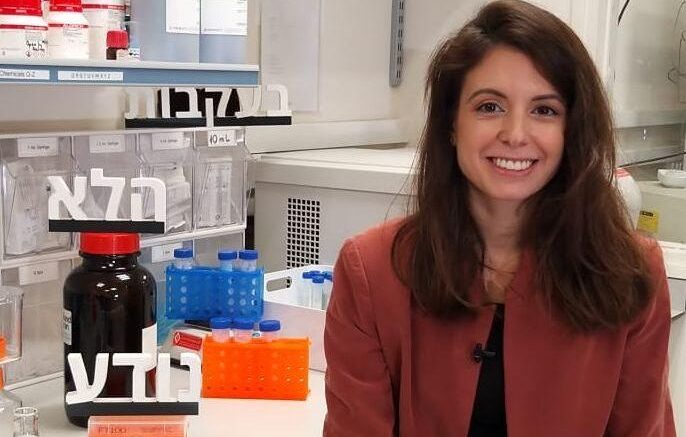Dr. Ines Zucker
Studies have shown that SARS-CoV-2 remains active on aerosols and surfaces for between several hours and several days, depending on the nature of the surface and environmental conditions. Presently, researchers from Tel Aviv University have demonstrated that ozone, which has already long been used as an antibacterial and antiviral agent in water treatment, effectively sanitizes surfaces against coronavirus after short exposure to low concentrations of ozone.
The research team was led by Dr. Ines Zucker from the School of Mechanical Engineering at the Ivy and Eldar Fleischman Faculty of Engineering and the Porter School of the Environment and Earth Sciences at the Tel Aviv University. Zucker collaborated with Dr. Moshe Dessau from the Azrieli Faculty of Medicine at Bar Ilan University in the Galilee and Dr. Yaal Lester from the Azrieli College in Jerusalem in order to investigate the feasibility of ozone for indoor inactivation of SARSCoV-2.
The preliminary findings of the study were published in the journal Environmental Chemistry Letters.
Most people recognize ozone as a thin layer of the Earth's atmosphere that guards us against the harmful effects of UV radiation. However, ozone is also known as a strong oxidant and disinfectant employed in water and wastewater treatment schemes. Within the study framework, the research team decided to adapt the mechanisms whereby they use ozone to break down organic pollutants from contaminated waters and demonstrate the expected efficacy of the ozone in neutralizing Coronavirus.
Ozone gas is generated by electrical discharge (the breakdown of chemical compounds into their elements using electric current), in the course of which oxygen molecules are reconstructed in the form of ozone molecules. In the course of their study, the researchers demonstrated the inactivation from various infected surfaces, even in hard-to-reach locations. They demonstrated a high level of disinfection within minutes, even on surfaces not typically disinfected with manually-applied liquid disinfectants with a statistical success rate of above 90%. According to Zucker, the method involves inexpensive and readily available technology, which can be utilized to disinfect hospitals, schools, hotels, and even aircraft and entertainment halls.
"Gaseous ozone is generated from oxygen gas by electrical discharge. Now, for the first time, we have managed to prove that it is highly efficient in combating coronavirus as well," stresses Zucker. "Its advantage over common disinfectants (such as alcohol and bleach) is its ability to disinfect objects and aerosols within a room, and not just exposed surfaces, rapidly and with no danger to public health."
Zucker estimates that, since the gas can be produced relatively cheaply and easily, it should be possible to introduce ozone disinfecting systems on an industrial scale to combat the COVID-19 outbreak.
Source: Tel Aviv University

Be the first to comment on "Researchers Say They Have Shown Ozone to be Effective Against Coronavirus"